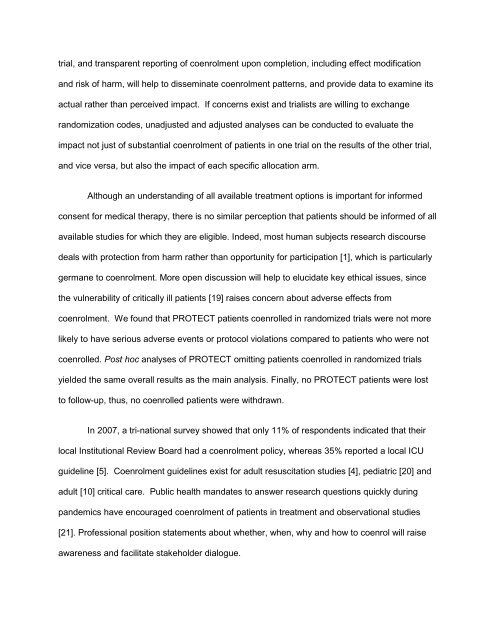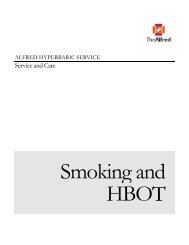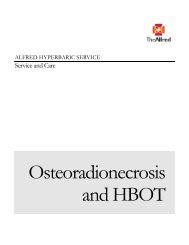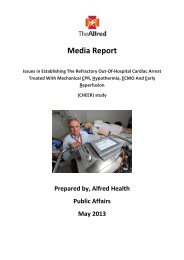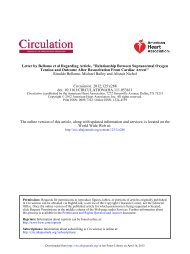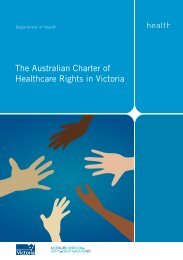Critical Care
See Full Article - Alfred Intensive Care Unit
See Full Article - Alfred Intensive Care Unit
- No tags were found...
You also want an ePaper? Increase the reach of your titles
YUMPU automatically turns print PDFs into web optimized ePapers that Google loves.
trial, and transparent reporting of coenrolment upon completion, including effect modification<br />
and risk of harm, will help to disseminate coenrolment patterns, and provide data to examine its<br />
actual rather than perceived impact. If concerns exist and trialists are willing to exchange<br />
randomization codes, unadjusted and adjusted analyses can be conducted to evaluate the<br />
impact not just of substantial coenrolment of patients in one trial on the results of the other trial,<br />
and vice versa, but also the impact of each specific allocation arm.<br />
Although an understanding of all available treatment options is important for informed<br />
consent for medical therapy, there is no similar perception that patients should be informed of all<br />
available studies for which they are eligible. Indeed, most human subjects research discourse<br />
deals with protection from harm rather than opportunity for participation [1], which is particularly<br />
germane to coenrolment. More open discussion will help to elucidate key ethical issues, since<br />
the vulnerability of critically ill patients [19] raises concern about adverse effects from<br />
coenrolment. We found that PROTECT patients coenrolled in randomized trials were not more<br />
likely to have serious adverse events or protocol violations compared to patients who were not<br />
coenrolled. Post hoc analyses of PROTECT omitting patients coenrolled in randomized trials<br />
yielded the same overall results as the main analysis. Finally, no PROTECT patients were lost<br />
to follow-up, thus, no coenrolled patients were withdrawn.<br />
In 2007, a tri-national survey showed that only 11% of respondents indicated that their<br />
local Institutional Review Board had a coenrolment policy, whereas 35% reported a local ICU<br />
guideline [5]. Coenrolment guidelines exist for adult resuscitation studies [4], pediatric [20] and<br />
adult [10] critical care. Public health mandates to answer research questions quickly during<br />
pandemics have encouraged coenrolment of patients in treatment and observational studies<br />
[21]. Professional position statements about whether, when, why and how to coenrol will raise<br />
awareness and facilitate stakeholder dialogue.


